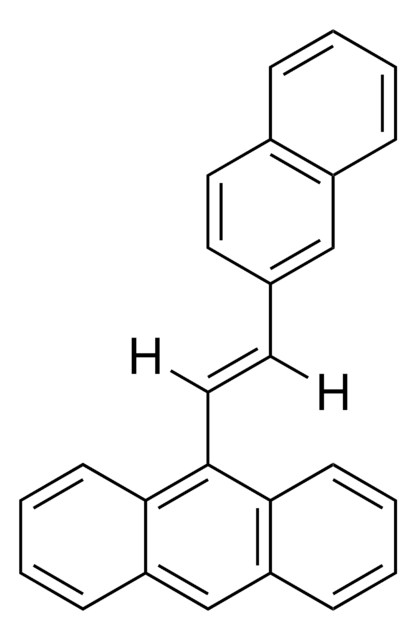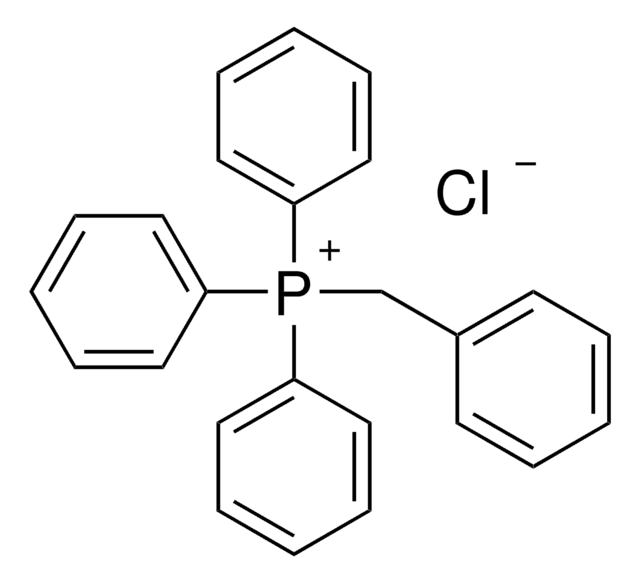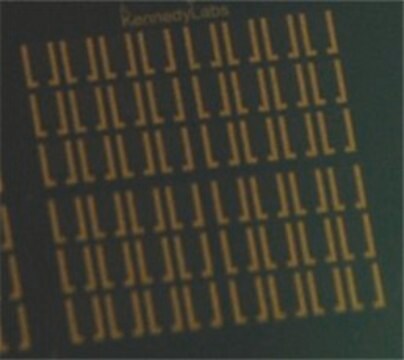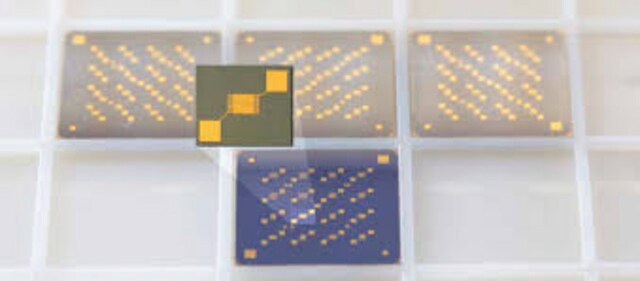S150-05F
Human Skeletal Muscle Cells: HSkMC: Pre-Screened for Insulin & AMPK signaling, fetal
Iniciar sesiónpara Ver la Fijación de precios por contrato y de la organización
About This Item
Código UNSPSC:
12352204
Productos recomendados
origen biológico
human skeletal muscle (normal limb)
envase
pkg of 500,000 cells
modo de crecimiento
Adherent
cariotipo
2n = 46
morfología
Skeletal muscle
técnicas
cell culture | mammalian: suitable
enfermedades relevantes
muscular dystrophy
Condiciones de envío
dry ice
temp. de almacenamiento
−196°C
Descripción general
Lot specific orders are not able to be placed through the web. Contact your local sales rep for more details.
Our pre-screened Human Skeletal Muscle Cells (HSkMC) are isolated from the skeletal muscle of hamstrings and retain morphological, biochemical, and metabolic characteristics of skeletal muscle. Pre-screened HSkMCs can undergo differentiation to exhibit actin and myosin myofilaments and are specially tested for functional AMPK and Insulin Signaling Pathways.
1. AMPK Signaling Pathway
AMP-activated protein kinase (AMPK) is a major cellular regulator of lipid and glucose metabolism and mediates the metabolic changes associated with exercise. AMPK phosphorylates and inhibits activity of acetyl CoA carboxylase (ACC), the enzyme responsible for making malonyl-CoA which is required for fatty acid chain elongation.
2. Insulin Signaling Pathway
Skeletal muscle is one of major target tissue of insulin action. Upon insulin binding, insulin receptor tyrosine kinases catalyze autophosphorylation of tyrosine residues providing docking sites for downstream signaling components, such as IRS-1 and Grb2, which relay the signaling further into the cell (see Fig.B).
Our pre-screened Human Skeletal Muscle Cells (HSkMC) are isolated from the skeletal muscle of hamstrings and retain morphological, biochemical, and metabolic characteristics of skeletal muscle. Pre-screened HSkMCs can undergo differentiation to exhibit actin and myosin myofilaments and are specially tested for functional AMPK and Insulin Signaling Pathways.
1. AMPK Signaling Pathway
AMP-activated protein kinase (AMPK) is a major cellular regulator of lipid and glucose metabolism and mediates the metabolic changes associated with exercise. AMPK phosphorylates and inhibits activity of acetyl CoA carboxylase (ACC), the enzyme responsible for making malonyl-CoA which is required for fatty acid chain elongation.
2. Insulin Signaling Pathway
Skeletal muscle is one of major target tissue of insulin action. Upon insulin binding, insulin receptor tyrosine kinases catalyze autophosphorylation of tyrosine residues providing docking sites for downstream signaling components, such as IRS-1 and Grb2, which relay the signaling further into the cell (see Fig.B).
Origen línea celular
Muscle
Aplicación
lipid and glucose metabolism, exercise, insulin action, cell signaling
Componentes
Basal Medium containing 10% FBS & 10% DMSO
Nota de preparación
- 2nd passage, >500,000 cells in Basal Medium containing 10% FBS & 10% DMSO
- Can be cultured at least 15 doublings
Rutina de subcultivo
Please refer to the HSkMC Culture Protocol.
Código de clase de almacenamiento
11 - Combustible Solids
Clase de riesgo para el agua (WGK)
WGK 3
Punto de inflamabilidad (°F)
Not applicable
Punto de inflamabilidad (°C)
Not applicable
Certificados de análisis (COA)
Busque Certificados de análisis (COA) introduciendo el número de lote del producto. Los números de lote se encuentran en la etiqueta del producto después de las palabras «Lot» o «Batch»
¿Ya tiene este producto?
Encuentre la documentación para los productos que ha comprado recientemente en la Biblioteca de documentos.
Nuestro equipo de científicos tiene experiencia en todas las áreas de investigación: Ciencias de la vida, Ciencia de los materiales, Síntesis química, Cromatografía, Analítica y muchas otras.
Póngase en contacto con el Servicio técnico








